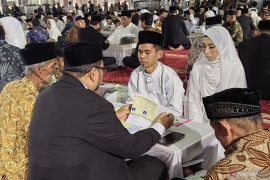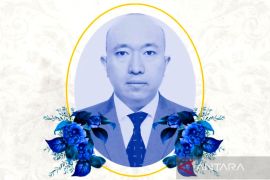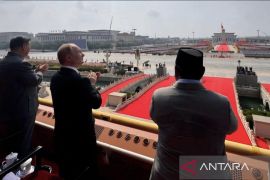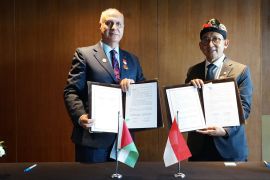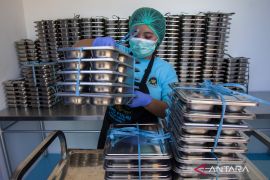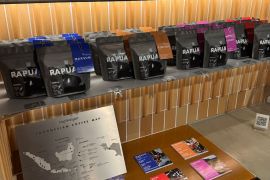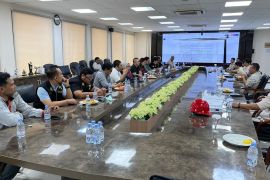"We hope that with the presence of this special desk in charge of handling investment in the textile and footwear sectors, the positive investment trend in the two sectors would be maintained," BKPM Chief Franky Sibarani stated here on Thursday on the sidelines of an event to raise awareness about the special desk.
Speaking about investment in the textile and footwear sectors in Central Java, he pointed out that investment should be balanced with the presence of investors who could optimally run their businesses.
"Therefore, if the textile and footwear investors in Central Java are facing a problem, they are expected to soon contact the special desk, so that the government would quickly offer assistance to them," Sibarani explained.
He pointed out that if new investors continued to grow, but the businesses in the sectors still encountered problems, it would create unfavorable business conditions in Indonesia.
In this case, the government should provide help and offer assurance to the investors facing problems that they would be helped and be ably facilitated, so that they do not need to lay off their workers.
The BKPM chief is visiting Semarang to raise awareness regarding its Textile and Footwear Investment Special Desk (DKI-TS) in Central Java Province, which is one of the countrys labor-intensive industrial centers.
Apart from providing a huge workforce for the labor-intensive industry in the country, Semarang is also the main hub for textile investment, Sibarani noted in a written statement on Wednesday.
"The five provinces of Central Java, West Java, Jakarta, East Jakarta, and Yogyakarta are the main centers for investment in the countrys textile sector. In the first semester of 2015, these provinces textile investments accounted for 85 percent of the total investment in the first quarter of 2015," Sibarani pointed out.
Central Java has overtaken West Java, which previously dominated textile investment in Java.
In the first semester of 2015, textile investment in Central Java reached Rp2.4 trillion, realized through 72 projects and provided jobs to 25.8 thousand workers.
Over the past five years, the value of investment in Central Java has reached Rp12.3 trillion.
"We hope that the efforts of the DKI-TS will attract existing and new entrepreneurs to Central Java and its vicinity," Sibarani noted.
The BKPM had earlier conducted a program to spread awareness about the DKI-TS in Jakarta and was attended by about 300 textile and footwear sectors businessmen who mostly came from West Java and its vicinity.
During the program, the BKPM recorded complaints regarding the difficulties being faced by businessmen from the textile and footwear industries.
"Six upstream textile industries lodged their complaints. Through this program, we hope that businessmen from Central Java would use the DKI-TS to contact us," the BKPM head added.
The DKI-TS has been jointly established by the office of the chief economic minister, the trade ministry, the industry ministry, the manpower ministry, and the finance ministry. It is supported by the Indonesian Textile Business Association (API) and the Indonesian Shoe Factory Association (Aprisindo).
According to Sibarani, the special desk on investment was an effort by the government to help investors in the textile and footwear sectors in dealing with current business problems, so that layoffs could be prevented.
The establishment of the DKI-TS is claimed to be an effort by the state to facilitate, maintain, and help investors in the face of business difficulties, particularly the existing investors in Indonesia.(*)
Editor: Heru Purwanto
Copyright © ANTARA 2015
